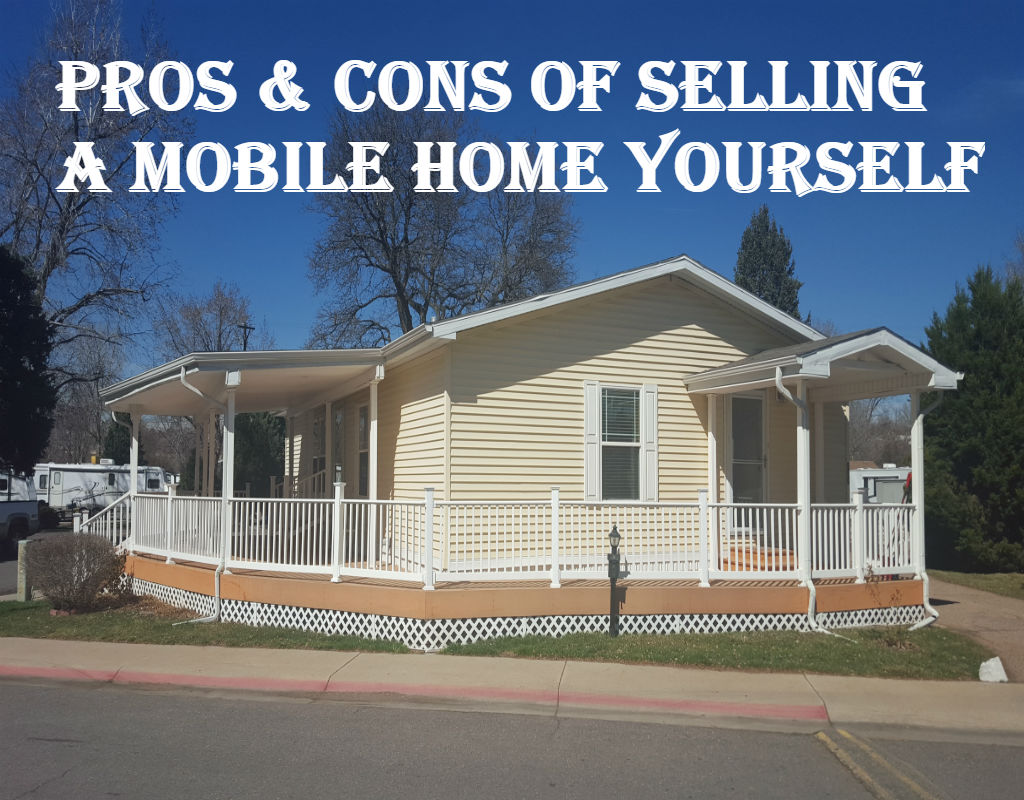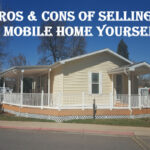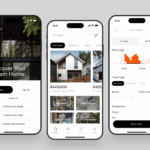Best tools and software to sell mobile homes online is a pivotal topic for those venturing into the real estate market of mobile homes. As the demand for affordable housing solutions continues to rise, leveraging the right platforms, software, and strategies becomes essential for effective sales. This discussion will explore leading online marketplaces, essential software tools, and innovative marketing strategies that together create a robust framework for sellers looking to optimize their sales process.
By understanding the various tools and resources available, sellers can enhance their approach to marketing, streamline sales processes, and ultimately achieve greater success. From customer relationship management systems to financial analysis tools, this overview will shed light on how these instruments can facilitate smoother transactions and foster better buyer relationships.
Best Platforms for Selling Mobile Homes
Selling mobile homes online has become increasingly popular, with many platforms available to help sellers reach potential buyers effectively. Understanding the leading online marketplaces for mobile homes can significantly impact the success of your sales efforts. Each platform offers unique features and benefits that cater to different needs and preferences, making it essential to choose the right one tailored to your selling strategy.
Leading Online Marketplaces for Mobile Homes, Best tools and software to sell mobile homes online
There are several prominent platforms specifically designed for selling mobile homes. These platforms vary in their features, user experience, and community engagement. Here’s a comparison of some of the best options available today.
| Platform | Features | Benefits | Pros | Cons |
|---|---|---|---|---|
| MobileHome.net | Dedicated mobile home listings, search filters by state, and price range. | Targeted audience specifically looking for mobile homes. |
|
|
| Zillow | Comprehensive real estate database, including filters for mobile homes. | Large audience with high traffic from home buyers. |
|
|
| Facebook Marketplace | Local classifieds, user-friendly interface, and community engagement. | Ability to reach local buyers in your area. |
|
|
“Choosing the right platform can enhance visibility and improve your selling experience.”
In summary, each of these platforms offers unique functionalities and advantages that can cater to different selling strategies. MobileHome.net is ideal for reaching an audience specifically interested in mobile homes, while Zillow provides extensive market insights for a broader audience. Facebook Marketplace allows for local engagement and community-based sales. The choice ultimately depends on your specific goals, target audience, and preferred methods of engagement.
Essential Software Tools for Mobile Home Sales
In the competitive market of mobile home sales, leveraging the right software tools can significantly enhance the sales process. These tools not only streamline operations but also improve communication with potential buyers, making it easier to close deals efficiently. By integrating essential software, sellers can manage listings, track leads, and handle negotiations more effectively.One of the key aspects of a successful sales strategy is utilizing software that enhances various elements of the sales process.
Here, we dive into some of the essential software tools that are particularly effective for selling mobile homes. Each tool offers unique functionalities that cater to the specific needs of mobile home sales, from managing listings to facilitating communication with buyers.
Comparison of Software Tools for Mobile Home Sales
Understanding the functionalities of different software tools is crucial for making an informed decision. The following table compares several popular software tools, highlighting their key features and benefits for mobile home sales.
| Software Tool | Key Features | Benefits |
|---|---|---|
| Realtor.com | Property listings, market analysis | Wide audience reach, trusted platform |
| Zillow | Home value estimates, customer reviews | Informed pricing, direct consumer engagement |
| MobileHome.net | Mobile home listings, buyer resources | Targeted niche audience, specialized support |
| CRM Software (e.g., HubSpot) | Lead tracking, customer communication | Improved customer relationship management, personalized outreach |
| Social Media Platforms (e.g., Facebook Marketplace) | Community engagement, direct messaging | Local exposure, interactive buyer communication |
These software tools not only assist in managing listings and inquiries but also enhance communication with buyers. For instance, CRM software like HubSpot allows sellers to track interactions with potential buyers, making follow-ups more systematic and personal.
“Effective communication can be the difference between a closed deal and a missed opportunity.”
Additionally, platforms like Zillow and Realtor.com provide insights into market trends and buyer preferences, allowing sellers to tailor their approach based on data-driven insights. This ensures that potential buyers receive timely and relevant information, fostering trust and engagement.
Marketing Strategies for Mobile Homes
Effective marketing strategies are crucial for successfully selling mobile homes online. The mobile home market has unique characteristics that require tailored approaches to reach potential buyers. Utilizing the right marketing techniques can significantly enhance visibility and attract qualified leads, ensuring quicker sales and better pricing outcomes. Social media platforms offer a powerful channel for promoting mobile home listings, allowing sellers to engage directly with potential buyers.
Leveraging these platforms effectively can make a significant difference in your sales efforts.
Effective Online Marketing Techniques
To maximize your online presence and attract potential buyers, consider the following marketing techniques:
- Optimization: Ensure your listings are optimized for search engines. Use relevant s like “affordable mobile homes for sale” or “used mobile homes” in your website content and listings to improve searchability.
- Online Classifieds: Post listings on popular classified websites such as Craigslist or Facebook Marketplace, where many buyers frequently search for homes. Include comprehensive details and contact information.
- Email Marketing: Build an email list of potential buyers and send out regular newsletters featuring new listings, tips for homebuyers, and success stories to keep them engaged.
- Video Tours: Create video walkthroughs of the mobile homes you are selling. This gives potential buyers a realistic view of the property and can be shared easily across various platforms.
Using Social Media to Promote Listings
Social media is an invaluable tool for reaching a broader audience when selling mobile homes. Implement the following strategies to enhance your social media presence:
- Create Engaging Content: Post high-quality images and videos of the mobile homes, showcasing unique features. Use captions that highlight amenities and nearby attractions to capture interest.
- Use Targeted Ads: Utilize Facebook and Instagram ads to target audiences based on location, interests, and demographics. This ensures that your listings reach potential buyers who are most likely to be interested.
- Engage with Your Audience: Respond to comments and messages promptly. Building a relationship with your audience can create trust and encourage shares and referrals.
- Leverage Local Groups: Join local real estate or housing groups on platforms like Facebook. Share your listings and participate in discussions to increase visibility within the community.
Importance of High-Quality Images and Descriptions
High-quality images and compelling descriptions are essential for attracting potential buyers. They play a significant role in how listings are perceived online.
- Visual Appeal: Use well-lit, high-resolution images that showcase the mobile home’s exterior and interior. Include images of important features like kitchens, bathrooms, and outdoor spaces.
- Detailed Descriptions: Write thorough descriptions that highlight key features, such as square footage, number of bedrooms, and any recent renovations. Incorporate descriptions of the surrounding area, such as schools, parks, and shopping centers, to give buyers a sense of the community.
- Highlight Unique Selling Points: Focus on what makes the mobile home stand out, such as energy efficiency, a spacious layout, or a prime location. Use bullet points to make this information easy to read.
“A picture speaks a thousand words; ensure your images tell the story of your mobile home.”
Financial Tools for Mobile Home Sellers
Selling mobile homes can be a lucrative venture, but understanding the financial landscape is essential for maximizing profits. Utilizing the right financial tools allows sellers to effectively price their homes, analyze potential profits, and manage selling expenses efficiently. This guide details the essential resources and strategies that can aid mobile home sellers in making informed financial decisions.
Pricing and Financial Analysis Tools
Determining the right price for a mobile home requires careful financial analysis and market research. Various tools can assist sellers in assessing value and ensuring competitive pricing. Here are several key tools that can help:
- Online Valuation Tools: Websites like Zillow or NADA Guides provide estimated values based on location, size, and features of the mobile home.
- Comparative Market Analysis (CMA) Tools: CMA tools help sellers analyze recent sales of similar homes in the area to gauge market trends and appropriate pricing.
- Real Estate Investment Calculators: These calculators assess profitability, return on investment (ROI), and cash flow, helping sellers understand the financial implications of their sale.
- Mortgage Calculators: Useful for understanding potential buyer financing options and monthly payments, which can affect pricing strategy.
Using Financial Calculators for Profit Margins
Financial calculators are invaluable for mobile home sellers aiming to determine their profit margins. By inputting various financial metrics, sellers can evaluate their potential earnings on the sale. The basic formula for calculating profit margin is:
Profit Margin = (Selling Price – Cost Price) / Selling Price x 100
To effectively use financial calculators:
- Gather all cost data, including purchase price, repairs, and any ongoing expenses during ownership.
- Input the estimated selling price into the calculator along with total costs to obtain a profit margin percentage.
- Utilize scenario analysis by adjusting selling prices or costs to see how different variables affect profit margins.
Budgeting for Selling Expenses
A comprehensive budget is crucial for managing the costs associated with selling a mobile home. Understanding these expenses ensures sellers can accurately price their homes while still achieving a profit. Key expenses to consider include:
- Repair and Renovation Costs: Upgrading appliances, fixing plumbing, or addressing structural issues can increase property value.
- Marketing Expenses: Costs associated with advertising on platforms, creating listings, and possibly staging the home for showings.
- Closing Costs: Fees that may include agent commissions, title insurance, and other transaction fees.
- Inspection Fees: Hiring a professional to inspect the home can provide transparency and mitigate buyer concerns.
Developing a detailed budget in advance can help sellers prepare for these expenses and ensure they are not caught off guard, ultimately leading to a more successful sale.
Customer Relationship Management (CRM) Solutions
The role of Customer Relationship Management (CRM) systems in mobile home sales is becoming increasingly critical as businesses strive for efficiency and improved customer satisfaction. CRM tools enable sellers to manage customer interactions, streamline the sales process, and enhance relationships with prospects and buyers. With tailored features for the mobile home industry, these systems can significantly impact sales performance.Implementing a CRM system allows mobile home sellers to keep track of leads and customer interactions.
This not only enhances communication but also helps in managing follow-ups, appointments, and sales pipeline effectively. By utilizing CRM tools, sellers can analyze customer data to make informed marketing and sales decisions.
Comparison of Popular CRM Tools for Mobile Home Sales
There are several CRM tools that cater specifically to the needs of the mobile home sales market. When evaluating these tools, consider their functionalities and how they suit the specific requirements of your sales process. Below is a comparison of some popular CRM solutions:
- Salesforce: A leading CRM platform known for its customization capabilities and extensive features, including customer segmentation, analytics, and integration with marketing tools.
- HubSpot CRM: Offers a free version with essential features for small businesses. It includes tools for contact management, email tracking, and sales automation, making it user-friendly for mobile home sellers.
- Zoho CRM: Provides robust features at a competitive price point, including lead management, workflow automation, and customer analytics. Ideal for small to medium-sized businesses in the mobile home sector.
- Pipedrive: Focuses on sales pipeline management and helps teams visualize their sales processes. It is designed to be simple and effective, making it a great choice for mobile home sales teams.
- Real Geeks: Tailored specifically for real estate and mobile home sales, offering lead capture tools, automated follow-ups, and a robust CRM system to manage customer relationships efficiently.
Features to Look for in CRM Software
Selecting the right CRM software is crucial for maximizing productivity in mobile home sales. The following checklist Artikels essential features to consider when evaluating CRM options:
- User-friendly Interface: The software should be easy to navigate, allowing users to quickly access the necessary tools and data.
- Lead Management: Effective tracking and management of leads are vital. Look for features that allow for easy input, tracking, and follow-up with prospects.
- Integration Capabilities: The CRM should integrate smoothly with other tools such as email marketing platforms, social media, and analytics tools.
- Automated Workflows: Automation of routine tasks such as email follow-ups and reminders can save time and improve efficiency in the sales process.
- Analytics and Reporting: In-depth analytics capabilities allow sellers to track performance metrics and customer trends, helping to inform future sales strategies.
- Mobile Access: As sales teams are often on the go, having mobile access to the CRM is essential for updating information and managing customer interactions from anywhere.
“A CRM system is essential for managing customer relationships effectively and streamlining sales processes in the mobile home industry.”
Legal and Documentation Tools
In the realm of mobile home sales, managing legal documentation is critical to protecting your interests and ensuring compliance with local laws. Various software tools exist to streamline this process, making it easier for sellers to navigate the often complex landscape of regulations and requirements associated with mobile home transactions.Legal documentation management software is designed to assist sellers in organizing, storing, and retrieving essential documents related to mobile home sales.
These tools often come equipped with templates and automated features to create necessary legal documents, making the process far more efficient. By utilizing such software, sellers can minimize the risk of errors and ensure that all required paperwork is completed accurately and promptly.
Essential Documents Required for Selling Mobile Homes
When selling a mobile home, it is imperative to have a comprehensive set of legal documents prepared to facilitate the transaction. Here are the essential documents typically required:
- Title Certificate: The official document proving ownership of the mobile home.
- Bill of Sale: A legal document that records the transfer of ownership from the seller to the buyer.
- Purchase Agreement: A contract that Artikels the terms and conditions of the sale.
- Disclosure Statements: Documents that inform the buyer about any known defects or issues with the property.
- Inspection Reports: Results of any inspections conducted on the mobile home, which may be required by law or requested by the buyer.
- Financing Documents: If the seller is providing financing, all necessary paperwork detailing the loan agreement and repayment terms must be included.
- Tax Documents: Any documents related to property taxes or fees associated with the mobile home.
Ensuring compliance with local laws and regulations is crucial in mobile home sales. Each state may have different requirements regarding disclosures, inspections, and documentation. Sellers should research their specific state’s laws or consult with a legal professional to ensure they meet all legal obligations.
Ensuring Compliance with Local Laws and Regulations
To maintain compliance with local regulations when selling mobile homes, sellers should employ several best practices. Utilizing legal documentation management tools can help simplify this process, ensuring that all necessary documents are available and correctly filled out. One effective method is subscribing to software that keeps track of state-specific regulations and provides updates regarding any changes in the law. Additionally, sellers should consider the following strategies:
- Consult Legal Professionals: Engaging with a real estate attorney knowledgeable in mobile home laws can provide invaluable guidance to navigate the legal landscape.
- Regularly Review Local Regulations: Tracking updates and changes in local laws ensures compliance and reduces the risk of legal issues.
- Utilize Compliance Checklists: Software often comes with built-in checklists to ensure that all necessary documents and procedures are followed, promoting thoroughness in the sale process.
- Training and Resources: Investing time in learning about local laws and best practices through seminars or online resources can equip sellers with the knowledge needed to operate within legal boundaries.
By integrating these practices into their sales process, mobile home sellers can significantly reduce potential legal complications and ensure a smooth transaction.
Best Practices for Online Listings: Best Tools And Software To Sell Mobile Homes Online
Creating effective online listings for mobile homes is crucial for attracting potential buyers and closing sales. The digital marketplace is competitive, and a well-crafted listing can significantly differentiate your property from others. It’s essential to present the mobile home in the best light while providing accurate information that builds trust with potential buyers.Accurate property descriptions and specifications are vital. Buyers rely heavily on the details provided in a listing to make informed decisions.
Misleading or vague descriptions can lead to distrust and ultimately lost sales. Clear, concise, and honest information ensures that you attract serious inquiries and set the right expectations.
Guidelines for Writing Online Listings
When writing your mobile home listings, consider the following best practices to enhance the effectiveness and appeal of your posts:
- Clear Headline: Begin with a catchy and informative title that highlights the key features, such as “Spacious 3-Bedroom Mobile Home with Modern Upgrades.”
- Compelling Description: Write a detailed description that highlights the unique selling points of the mobile home. Include the number of bedrooms and bathrooms, square footage, and any recent renovations. Use descriptive language to paint a vivid picture.
- High-Quality Photos: Include multiple high-resolution images showcasing the interior and exterior of the mobile home. Ensure that the lighting is good, and consider adding images of the surrounding area to give buyers context.
- Accurate Specifications: Provide precise measurements and details about the property. Include information like the year of manufacture, model, lot size, and any community amenities available.
- Highlight Benefits: Emphasize the advantages of living in that mobile home, such as energy efficiency, low maintenance costs, and proximity to schools or parks. This helps buyers envision their life in the home.
- Call to Action: Encourage immediate action by including phrases like “Schedule a viewing today!” or “Contact us for more information!” This creates a sense of urgency and motivates potential buyers to reach out.
Examples of Successful Mobile Home Listings
Successful mobile home listings often share common elements that yield positive responses from potential buyers. Here are a couple of examples that illustrate effective listing strategies:
“Charming 2-Bedroom Mobile Home in Quiet Community – This beautifully maintained home features an open-concept living space, modern kitchen with stainless steel appliances, and a large deck perfect for entertaining. Located minutes from the local park and shopping centers, it offers both comfort and convenience. Schedule a tour today!”
“Spacious 4-Bedroom Family Home – This 2005 model boasts generous living space, including 4 bedrooms and 2 full baths, with a cozy fireplace and expansive backyard. Upgraded HVAC system and new roof installed in 2022. Perfectly located near schools and playgrounds. Don’t miss out on this great opportunity!”
These examples show the importance of clear descriptions, inviting language, and highlighting key features that resonate with potential buyers. By following these guidelines, sellers can create effective listings that attract the right audience and facilitate successful transactions.
Summary

In conclusion, navigating the complexities of selling mobile homes online requires an informed approach and the right set of tools. By utilizing effective platforms, specialized software, and strategic marketing techniques, sellers can significantly increase their chances of success in a competitive market. Embracing these best practices not only enhances the selling experience but also empowers sellers to make well-informed decisions that lead to profitable outcomes.




